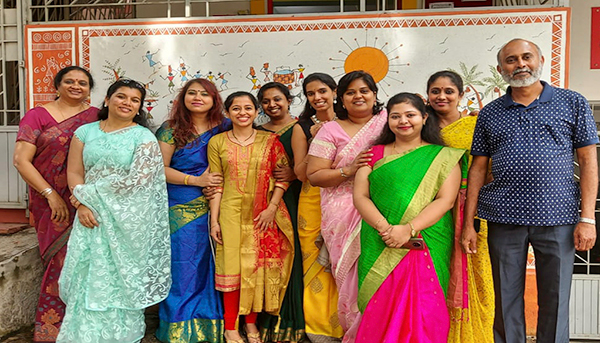Life skills have been internationally identified by the World Health Organization (WHO) of United Nations as the most important learning and an asset to lead a fulfilling life.
In India CBSE has made Life Skills training compulsory, and most other Boards are following it up. Engineering colleges are incorporating life skills training to ensure that students are made industry-ready; Bangalore University has made it compulsory for Arts, Science and Commerce students to study Life Skills in 4th Semester. Many prestigious corporate and business organisations are looking for soft-skills trained candidates.
Banjara and its alumni are associated with a number of institutions to conduct Life Skills programs.
With more than 30 years of experience in counselling, training, empowering trainers and imparting life skills, Team Banjara offers this program to empower you to systematically and scientifically either learn for yourself or to guide others, i.e. adults, youngsters or children to improve their quality of life. You may also consider using this skill for a business venture.
Write to banjaraenquires@gmail.com for more details
Our Life Skills Students
Lectures, case studies and activities through videos and notes sent to you once a week. In addition, weekly review classes through webinars will be held to clarify doubts.
The aim is to help you connect your learning to real life scenarios. No grading or marks will be allotted. Criteria for course completion will be your actual skill development.
The course has been designed through scientific methods from many years of experience of Dr. Ali Khwaja and Team Banjara.
The program has been built on the 10 essential Life Skills propounded by World Health Organization (WHO), which are
1)Problem Solving
2)Decision Making
3)Creative Thinking
4)Critical Thinking
5)Communication Skills
6)Interpersonal Relation
7)Empathy
8)Self Awareness
9)Managing Emotions
10)Management of Stress
The course has techniques and methods adapted to Indian conditions. Topics include Self esteem, Assertiveness, team building, Openness, flexibility etc, and also topics based on Value Education like Honesty, Forgiveness, Gratitude, Compassion, Respect, Purpose of Life.
This program is Open to all adults who are concerned and want to understand the importance of Life Skills as an essential aspect of handling growth, challenges and smooth development.
While the program is meant for persons with an academic background up to graduation level, those with and lesser qualification are also considered on interview, if they are caring and sensitive human beings and have had sufficient exposure to life.
What you need is the right attitude to strictly follow the guidelines of the course and the Academy, and a sincere commitment to understand human beings and to guide people sincerely in terms of their future-plans and careers.

